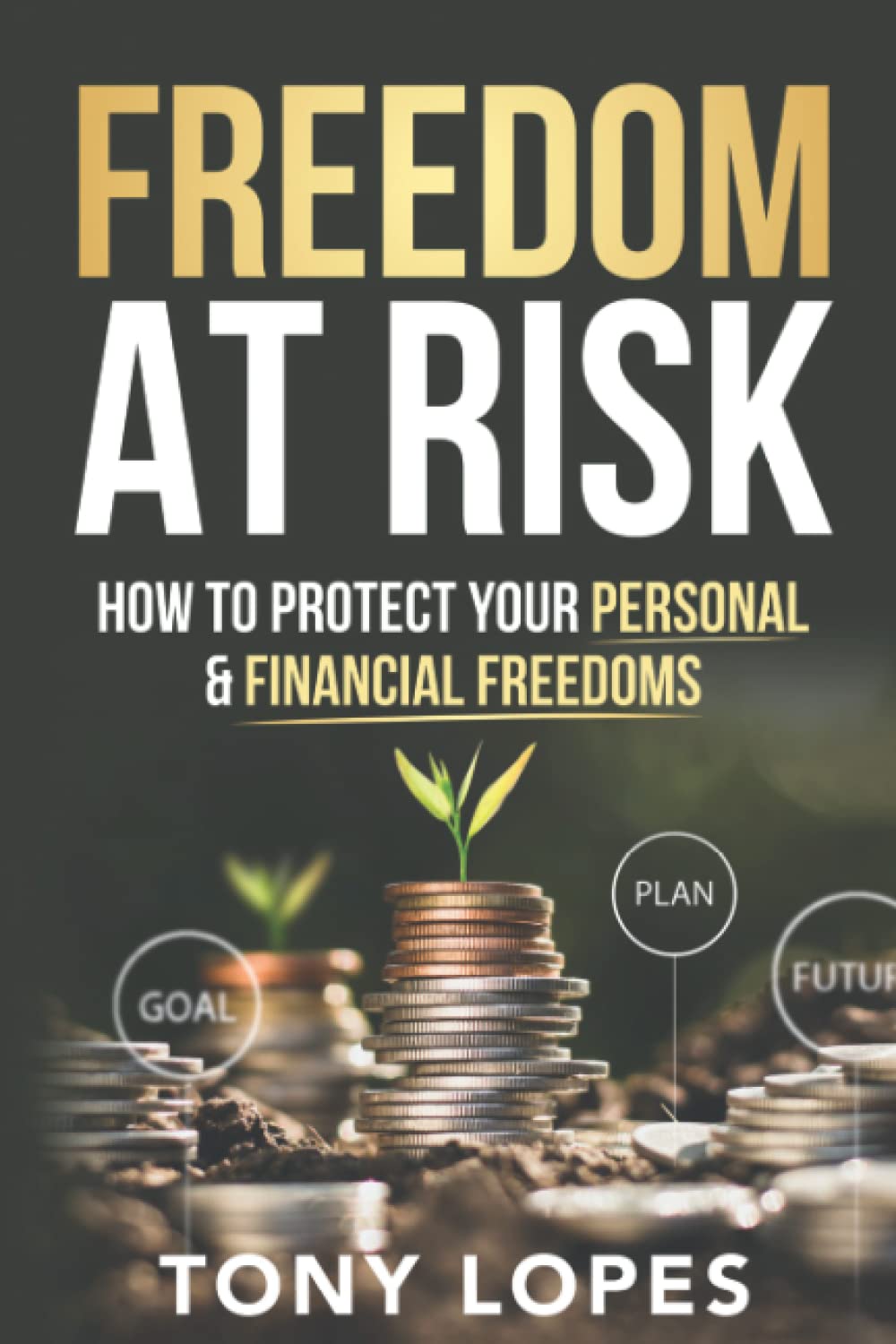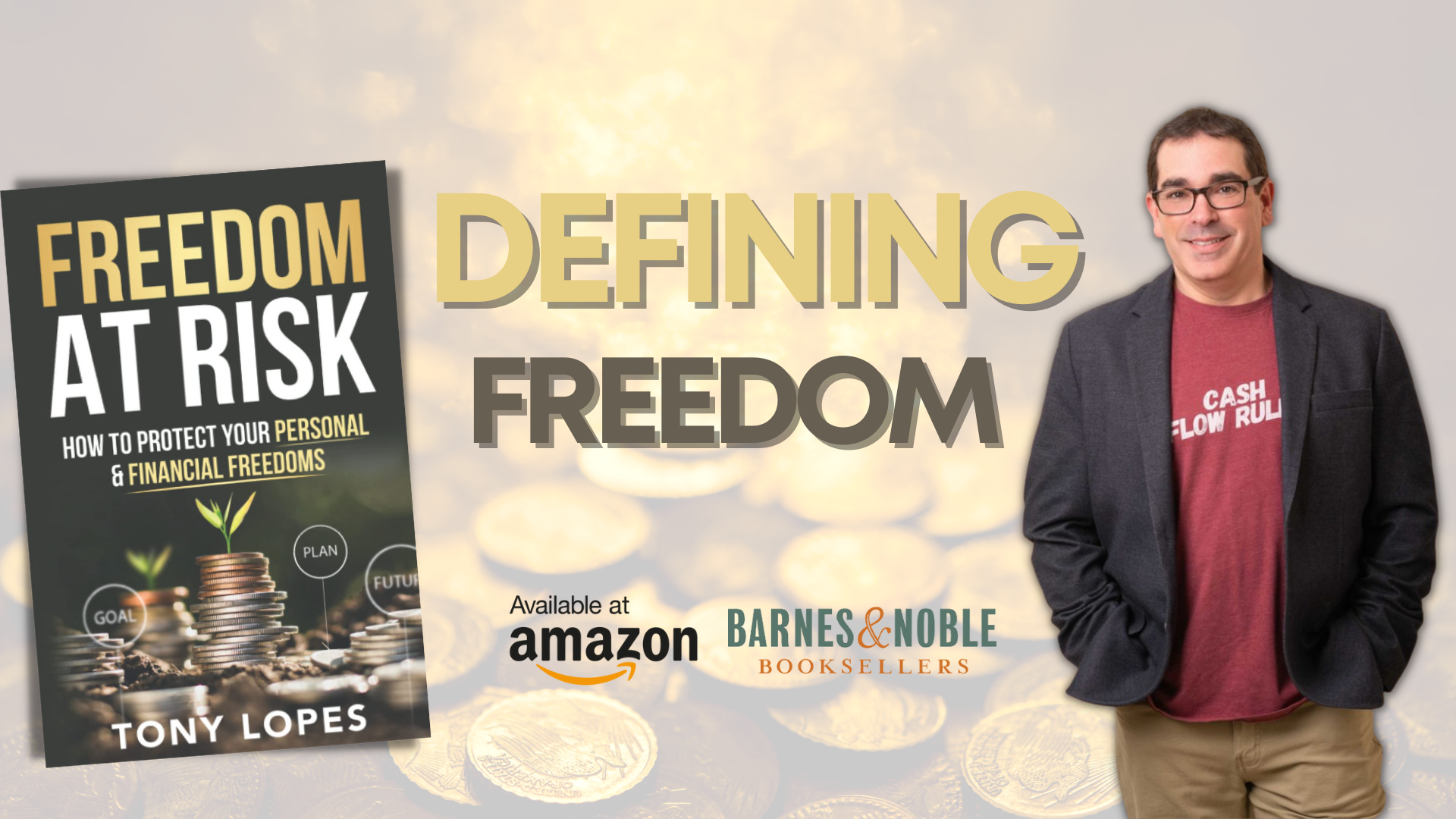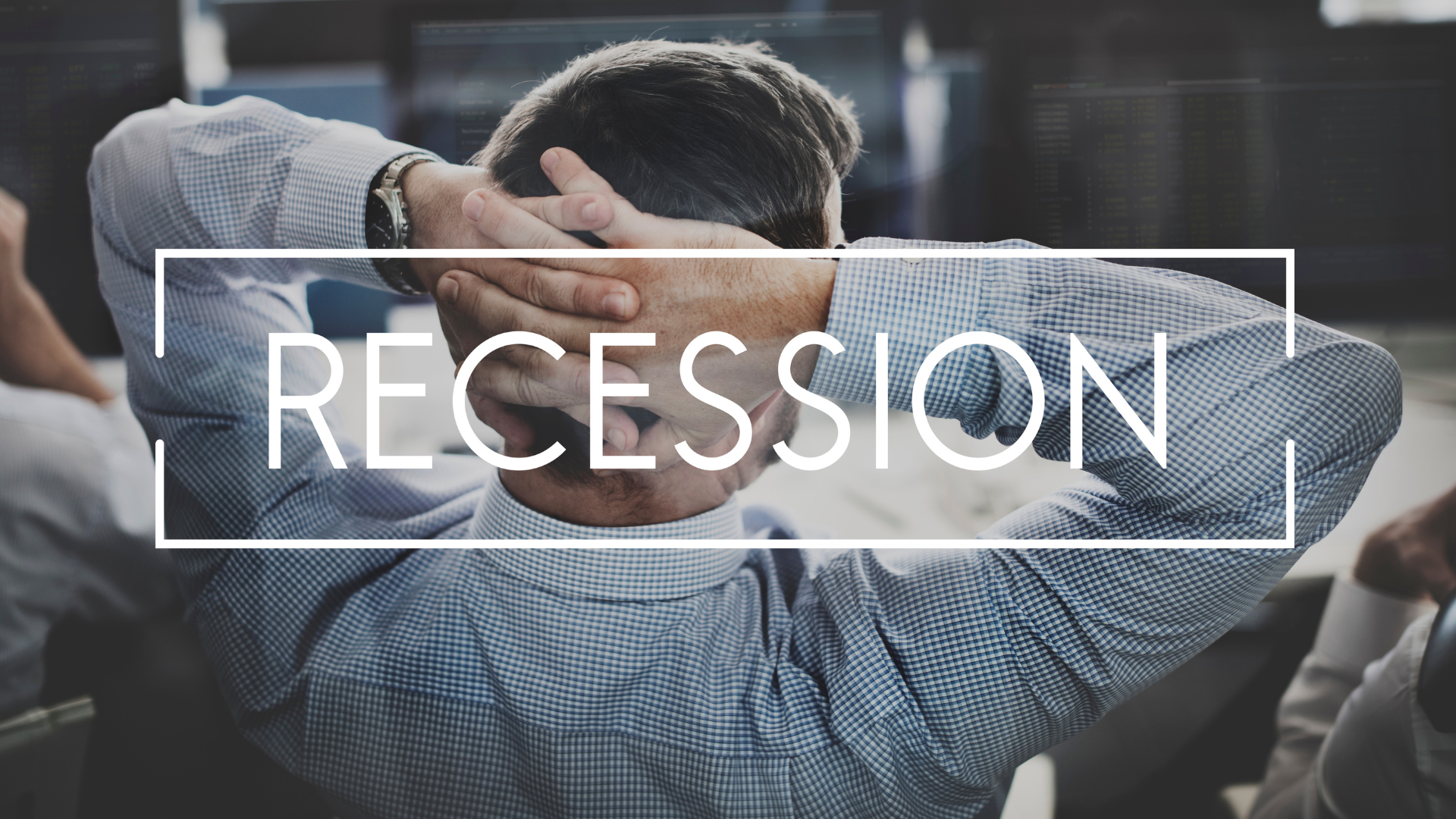“If you want total security, go to prison. There you are fed, clothed, given medical care, and so on. The only thing lacking is freedom.” ~ Dwight D. Eisenhower
Most of us do not think about our freedoms very often; that is, until they are threatened. I am sure you have heard the phrase, “You do not know what you have until it is gone.” Our freedoms are central to who we are as individuals and as a society. They define how we think, speak, learn, participate in the political process, and engage with the world around us. But much like the air we breathe, we often take those freedoms for granted until, like a punch to the gut that knocks your air out, we lose them.
Because we do not want to appreciate our freedoms only once they are gone, we need to assess what they look like for each of us in every stage of our life. Freedom’s first line of defense is knowledge of the freedom itself. To help you explore what that freedom looks like for you, let us simplify our lives into four quadrants: Early Life (0 – 20 years old), Mid-Life (21 – 40 years old), Later-Life (41 – 60 years old), and Retirement (61 – 80+ years old). At each stage, your freedom is intricately connected to your productive capacity. As we review your Early, Mid, Later, and Retirement years, we will examine how your capacity to contribute to society, the economy, and your own personal goals not only influences the level of freedom you can enjoy in that stage of life but also secures your freedoms for future life stages.
Early-Life (ages 0-20) is characterized as a period of maximum growth and learning. During this time, you grow physically and mentally. You may not be able to fully control your quality of life during this stage as you are largely dependent on those around you—your parents, your school, your teachers and your peers—but this is an essential time in which you can begin building the foundation for the productive capacity that will carry you throughout your life.
Mid-Life (age 21-40) is defined by a period of continued learning that builds on the foundation you began in your Early Life. The decisions you make during your Mid-Life have considerable impact on the freedoms you can enjoy in your Later-Life, and Retirement. This is the time when you start working, find a spouse, have kids, purchase your first house, and likely home in on a career path that will allow you to contribute to the economy, as well as your current and future personal goals. For instance, it is during Mid-Life that you can actively start saving for Retirement. It is during this stage that your quality of life is ever increasingly defined by you and your decisions about where to live, whom you marry, the jobs you take, how you spend your money, and more.
Later Life (age 41-60) is when your productive capacity is expected to be at its highest. You have almost certainly found a way to contribute to the economy by achieving prominence in your employment, or in your own business. You have also lived long enough to gain the kind of experience—both successes and failures—that you can pass to the next generation. You now have something of substance to offer as a crystal ball perspective for others, allowing you to contribute to society in new ways.
Later Life is also a period in which your earning potential is high, allowing you to contribute to your future of freedom by creating the majority of your savings for retirement during this time. To that point, you want your income (i.e., cash flow) to always be increasing over time and into retirement. Your quality of life should also be high during this period. You do not have to worry about how you are putting food on the table, or how to pay next month’s mortgage. And retirement is not only achievable but also something you are looking forward to.
Retirement (age 60-80+) is a time to fully enjoy the contributions that you made to your personal goals in earlier life stages and your focus is less on generating monthly cash flow or net worth. If those were not established in the earlier stages, then this will be a difficult time. Retirement is a period to maintain the same quality of life you have previously enjoyed, or even to increase the quality level.

It is the time when you decide to travel more or to hire a personal trainer to prevent injury in your daily routine or while playing golf or pickleball. This is probably not a thought when you are younger, as you either do not have strains and pains or they are minimal and you just deal with it.
There may be many other things you have not thought about regarding this stage of life. For instance, if freedom means being able to stay in your home as you get older, you will need to plan for the expenses of home health care or a visiting nurse if the need were to arise. Otherwise, you may lose that freedom and need to leave your home and potentially be put into a government-run home.
In terms of a retiree’s contribution to the economy, productive capacity may go down in retirement versus the active periods of life spent producing goods and services. There is also less contribution to oneself as a retiree—less contribution into retirement accounts, and less spending on oneself since a retiree likely already has a house, appliances, cars, stuff, etc. This all equates to less GDP. If we relied on retirees to grow an economy, we would be in huge trouble. Their economic contribution is low both in the economic (GDP) sense and in consumption, which is why it is so important for the younger generations to fill in for the older ones.
However, while contributions to the economy and personal goals may be greatly reduced in Retirement, the ability to contribute to society, in general, may be largest during this stage of life. Older people vote in political elections more, volunteer more, and have more time to serve as board members and in city, town, and state positions than those in earlier stages of life. As a retiree, your contribution is measured much less in terms of productive capacity and more so in terms of what you can give back in service and through being a teacher to those in the earlier stages of life.
As you use the workbook to assess each of these stages and what freedom would look like to you in each one, remember the power of the crystal ball and seek out the storytellers who can shine a light on the path ahead of you. If you want to be happy in retirement, talk to those who are retired. I am sure they will gladly share their stories with you. Likewise, if there is someone you see who is enjoying their Mid or Later-Life, do not hesitate to reach out and ask them what they did to achieve the freedoms they have that you admire. You may be surprised at how willing people are to share.
Expanding your vision to consider what you want for every stage of life is only the beginning of the process of defining what freedom means to you. Even so, you can begin to see the types of things to plan for today that your future self will thank you for doing now.
To develop greater clarity and more fully define your freedoms, the next step is to examine your values. Understanding what you value is a big part of who you are and where you are today.
The better you understand your values, the better you can protect your freedoms and prepare for the future. So, what do you value in life? To start the thinking process, let’s examine some generic high-level values.
Basic Necessities: Food, water, shelter.
The Family Unit: Traditions, vacations, holidays, helping each other.
Time: Available time to pursue personal goals and interests.
Flexibility: Freedom to choose when and how you work, go to school, take vacations, etc.
It may take time to identify what you value and thereby define freedom for yourself. Just as there are many known personality tests, there are various tests available to help you with this process to determine your values. As you use these tests and the companion workbook to identify your values, you may find that what you think you value is not a priority at all. Maybe it just sounds good, but when you take time to really think about it, there are bigger priorities in your life.
You may even find that there are some values that you would be embarrassed to share with others. I discovered this exact problem when I looked at my value system years ago. I was working for a large company that offered great training programs. I took advantage of some of these free training programs, one of which examined our values. After the exercise, the instructor asked us to shout out some of our values as he wrote them on a large flip chart. The typical values emerged, such as family values, personal values, etc. I had also written down many of those values, but no one shouted out one of my main values, which was money! Man, did I feel like a horrible person! Maybe I was being greedy or did not understand the exercise. Money? Really? I am glad I did not shout it out because I am sure they would have all laughed at me.
This is a silly but true example, and I carry that experience with me today. Over time, I discovered I was right. Money was a value of mine–not from the sense of being greedy or driving an expensive sports car, but from the perspective that money, as a high-level value, supports many of my other values. If I did not value money and I had to work five days a week, I would not be able to spend as much time with family (value). I would not have the flexibility (value) in my life to be creative (value) or to pursue personal and business goals (values).
Unfortunately, I dwelled on that experience for far too long. But I eventually figured it out. Today, because I understand where money stands within my value system, I am able to have the current lifestyle I enjoy. My first taste of retirement was at 44 years old. It was fantastic to have the day to myself to workout, go to the beach, or spend time on the driving range. It was liberating to spend sunny days outside instead of in a cubicle, and cold days sipping coffee at coffee shops and bookstores.
However, this newfound freedom revealed other personal values. The freedom of retiring early was bittersweet because it was quite lonely doing all this on my own. At 44, all my friends were still working. So, I had to reassess and decided I would share my successful experiences in real estate with people. There were many around who wanted to learn, and I loved talking about real estate, so it was a win-win.
I was fortunate to have this experience, this second grip at the bat. Through that experience, what I refer to as my first retirement, I realized how important it was for me to have a sense of purpose in so-called retirement. I will probably be doing what I do today until the day I die. I absolutely love it.
So, whether you are still far from retiring or it is one month away, what is your purpose? What is your legacy? And how do you want your obituary to read? Now is the time to be laying those bricks; it is never too early to dream about what it will be like. Start now. Understanding what you value and desire to achieve, become, and contribute throughout your life will help you prepare for your future of freedom.








